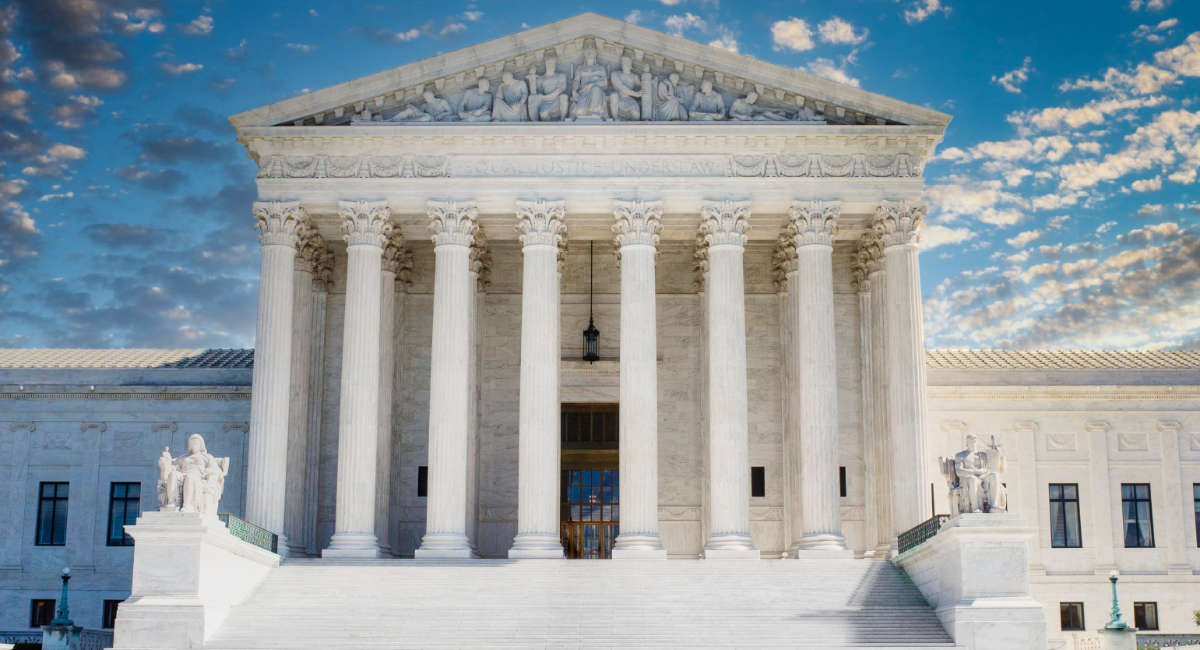Oral arguments were heard at the Supreme Court Monday morning in two cases pertaining to Texas’s SB 8, popularly known as the Heartbeat Act: Whole Woman’s Health v. Jackson and United States v. Texas. The cases did not directly challenge the constitutionality of the law itself, but, rather, addressed its unique method of enforcement, and whether the United States government can sue the state of Texas in federal court.
Appearing on behalf of Whole Woman’s Health, a group of abortion facilities, Marc A. Hearron argued that Texas’s law “transform[ed] the state courts from a forum for the protection of rights into a mechanism for nullifying them,” by “deliberately prohibit[ing] the exercise of a constitutional right recognized by [the Supreme] Court” and by delegating enforcement to private citizens, thereby evading federal court review. He claimed that the supremacy of federal law was at stake, and that allowing SB 8 to stand would provide a road map to other states for abrogating any Supreme Court decision with which they disagreed.
He argued that intervention by the Court was necessary because of the law’s “chilling effect” on the free exercise of the “right” to abortion; in other words, the prohibitive size of the punitive damages allowed for by SB 8 is a sufficiently strong deterrant that no abortion provider is willing to risk acting as a “test case” to initiate the judicial process by which the constitutionality of laws is ordinarily tested.
READ: Poll shows strong public support for Texas Heartbeat Act, despite media outrage
These arguments were largely mirrored by Solicitor General Elizabeth B. Prelogar on behalf of the federal government. She further contended that the US government has a “manifest sovereign interest” in suing the state of Texas to redress the “violation” incurred by SB 8, which she characterized as a “a brazen attack on the coordinate branches of the federal government.”
Representing Texas judges, court clerks, and other respondents in the Whole Woman’s Health case, as well as the state of Texas in United States v. Texas, state Solicitor General Judd E. Stone argued that none of the defendants were appropriate, because neither judges, nor court clerks, nor any other Texas official is responsible for enforcing the law. He also contended that the “novel remedies” being requested by the plaintiffs would have to be created by Congress before they could be adjudicated by the Court. He concluded that, barring such action, the Court had no authority to grant the plaintiffs’ petitions.
The idea of abortion as a “right” was not challenged during today’s proceedings — indeed, it appeared to be implicitly accepted by virtually all participants. Even Justice Neil Gorsuch — who questioned why so-called abortion rights “get special treatment” rather than ‘equal enforcement’ — spoke about abortion within the context of rights.
This issue is likely to be directly questioned when the court hears arguments in Dobbs v. Jackson Women’s Health Organization next month.
“Like” Live Action News on Facebook for more pro-life news and commentary!







